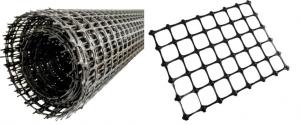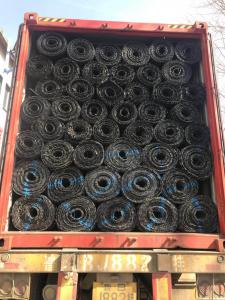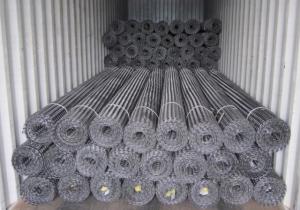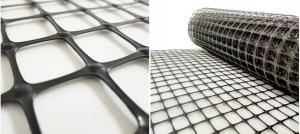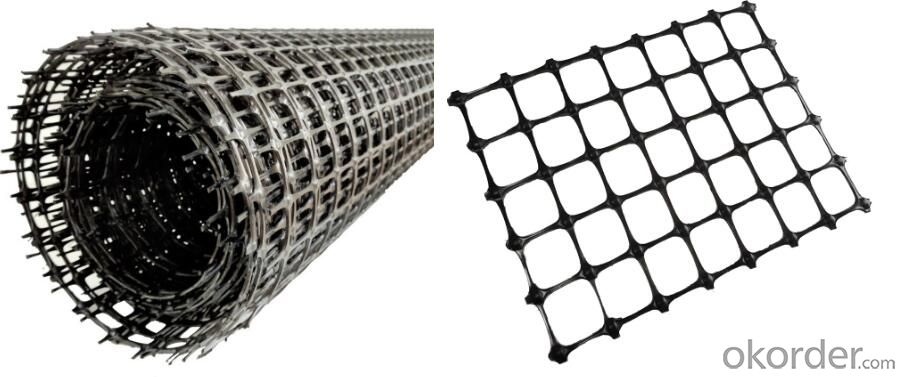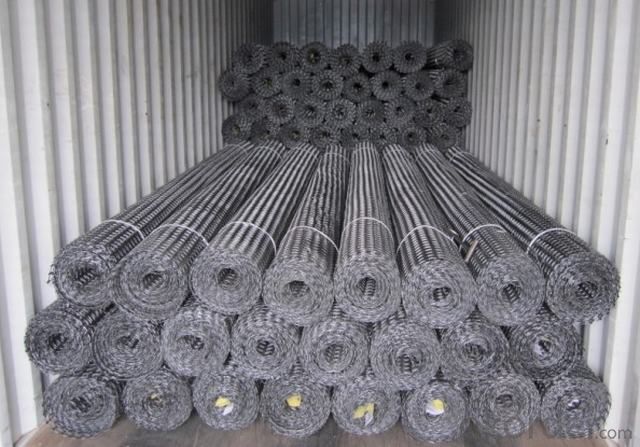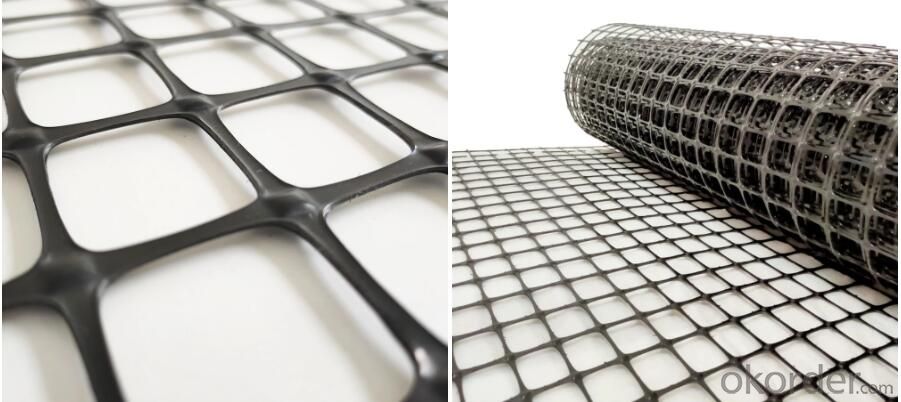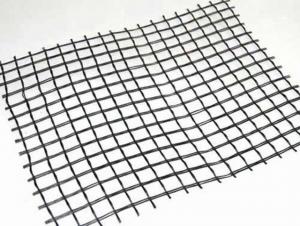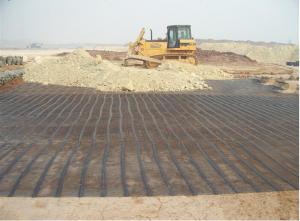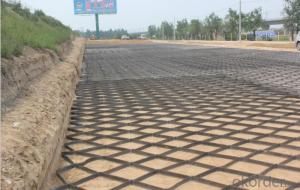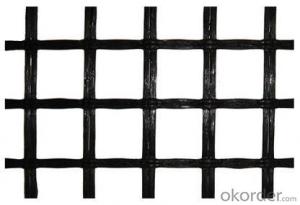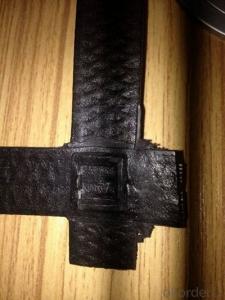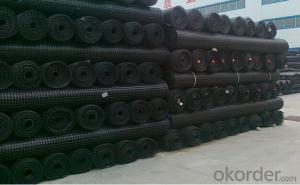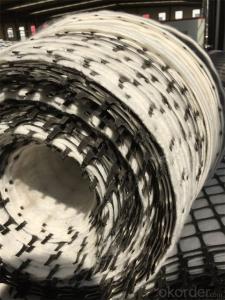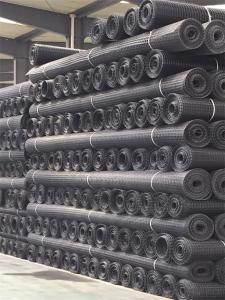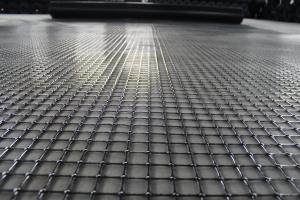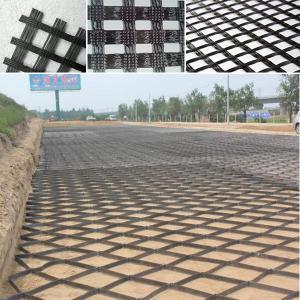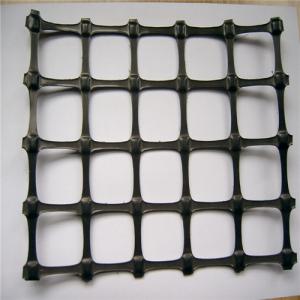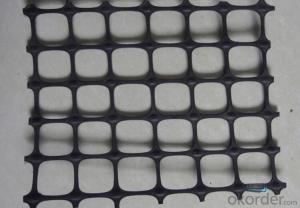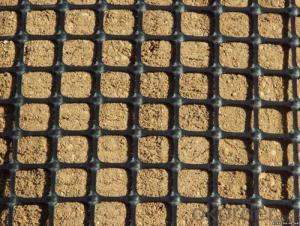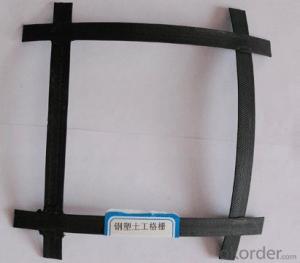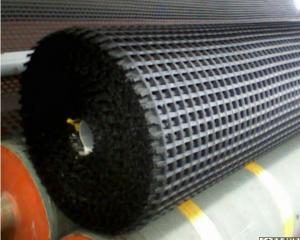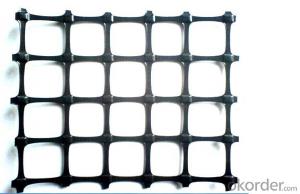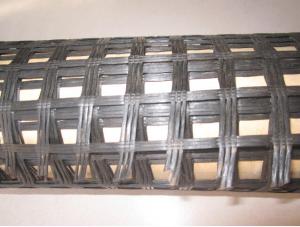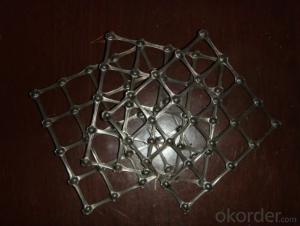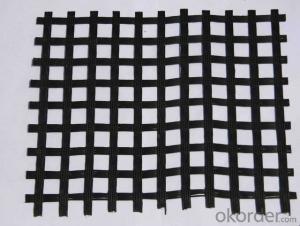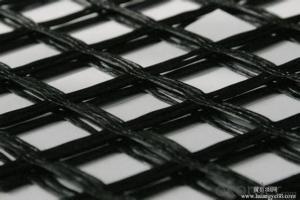PP Biaxial Geogrid 30kn/30kn for Road Reinforcement Project
- Loading Port:
- Tianjin
- Payment Terms:
- TT or LC
- Min Order Qty:
- 5000 m²
- Supply Capability:
- 900000 m²/month
OKorder Service Pledge
OKorder Financial Service
You Might Also Like
Introduction of PP Biaxial Geogrid:
1.Description of PP Biaxial Geogrid
CMAX PP geogrid is made of polymer and certain additive by extrusion technology.
2.Specification of PP Biaxial Geogrid
Tensile Strength: 15-15KN; 20-20KN; 30-30KN; 40-40KN;
Road Size: 3.95x100m; as customer required;
Types: Biaxial;
3. Technical Data Sheet of PP Biaxial Geogrid
Specification | Unit | Test Method | GG1515 | GG2020 | GG2525 | GG3030 | GG4040 |
Polymer | - | PP | |||||
Minimum Carbon Black Content | % | ASTM D 4218 | 2% | ||||
Weight (Tolerance: 10%) | g/m2 | - | 180 | 230 | 270 | 330 | 460 |
Tensile Strength(MD, TD) | KN/m | ASTM D 6637 | 15 | 20 | 25 | 30 | 40 |
Peak Strain (MD, TD) | % | ASTM D 6637 | 13 | 13 | 13 | 13 | 13 |
Load at 2% strain(MD, TD) | KN/m | ASTM D 6637 | 5 | 7 | 9 | 14 | |
Load at 5% strain(MD, TD) | KN/m | ASTM D 6637 | 7 | 14 | 17 | 21 | 28 |
Junction Efficiency | % | GRI GG2 | 95 | ||||
Flexural Rigidity | mg-cm | ASTM D 7748 | 690,000 | 1,090,000 | - | 3,930,000 | 11,480,000 |
Aperture Stability | m-N/deg | COE Method | - | ||||
4.Property of PP Biaxial Geogrid
1). Not easy to produce static after friction. In the coal mine, surface static resistance average is below 1 x 10^9
2). Good flame retardant performance, melt not burning under glam environment, even burning it will extinguish in 10s.
3). Strong anti-corrosion property.
4). High bearing capacity, low elongation.
5.Application of PP Biaxial Geogrid
Coal mine channels, more than 2 layers needed if for false roof use.
FAQ
Q: Can you accept sample order?
A: Yes, we are willing to send small samples for free, while the shipping fee should be afforded by yourself.
Q: What is your delivery time?
A: 1 days for samples, two weeks for mass production.
Q: What is your payment terms?
A: T/T , L/C, Western Union, Money Gram. 30% advance before producing, 70% payment before deliverying.
Q: How can I get my order?How can I know you sent the goods.
A: We will send you the goods by UPS, DHL, Fedex, Oversea Shipment or other forwarder,
all with tracking number or B/L.
Q:How about your quality?
A: Try a small order, you will have your own judgment!
Q: what esle product do you need?
A: pp nonwoven geotextile, pp woven geotextile, geomembrane, polyester geogrid, fiberglass geogrid, geocomposite, etc.
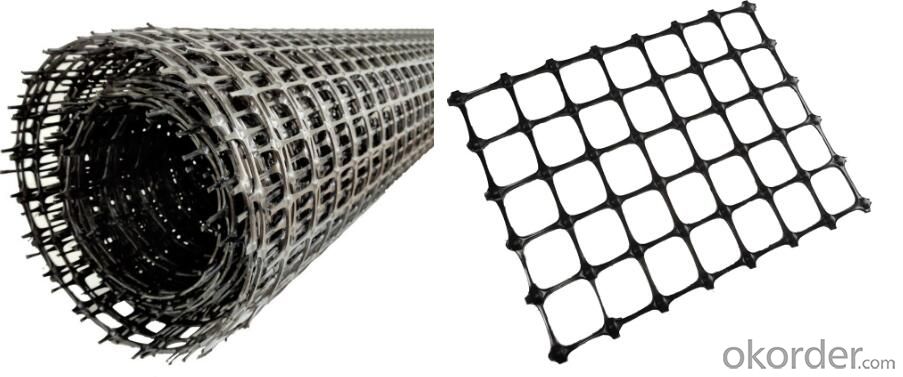
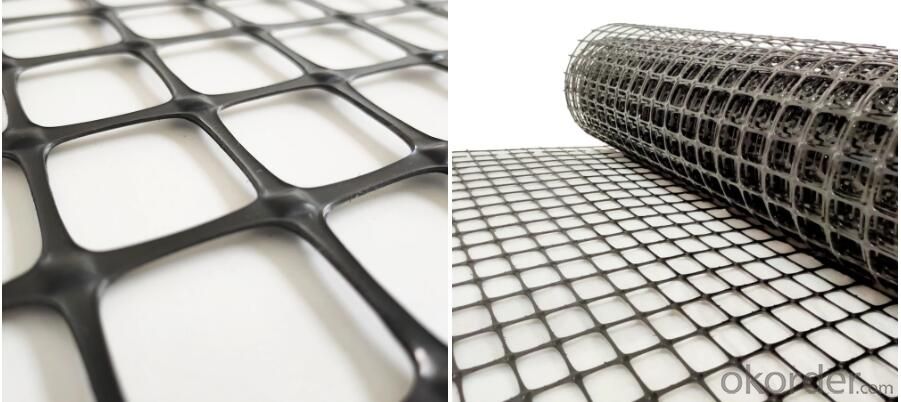
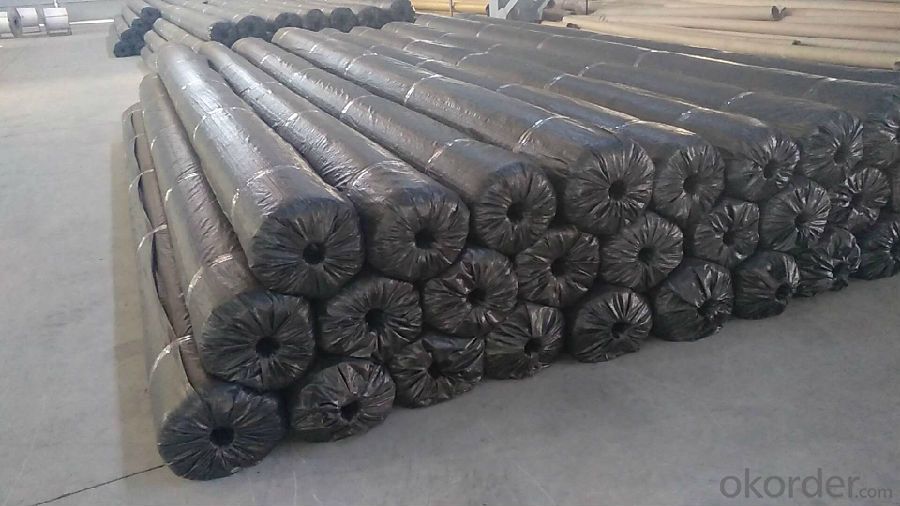
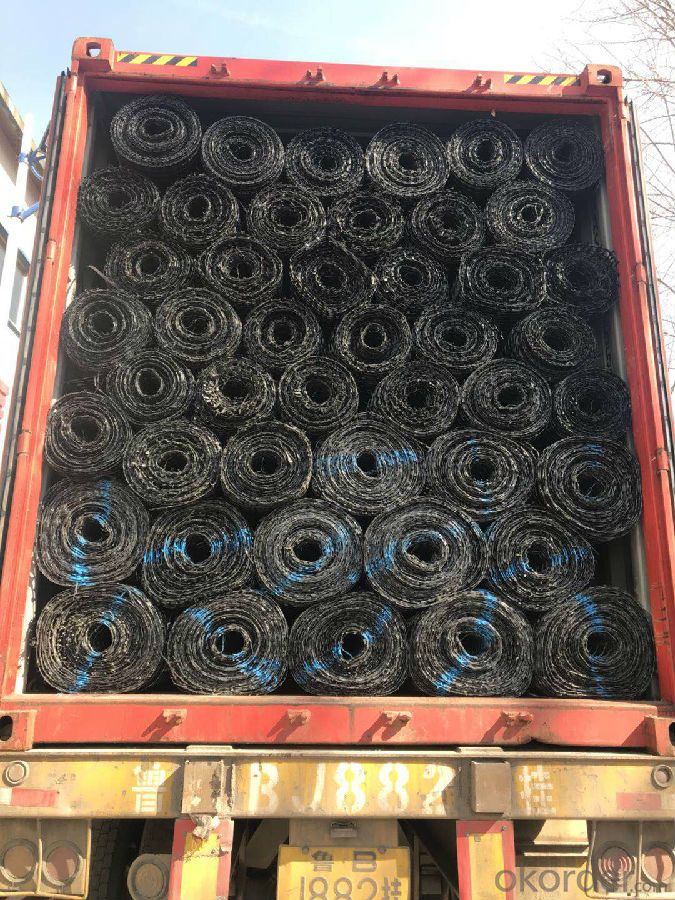
- Q: How do geogrids improve the performance of geogrid-reinforced earth walls?
- Geogrids improve the performance of geogrid-reinforced earth walls by providing tensile strength and stabilizing the soil, which helps to prevent the wall from sliding or collapsing. They distribute the forces exerted on the wall more evenly, reducing stress concentration and increasing overall stability. Additionally, geogrids enhance drainage and soil compaction, further enhancing the wall's performance.
- Q: Fiberglass geogrid is mainly used for old road reconstruction, the main purpose is to reduce reflection
- Geotextiles are used for road, railway, tunnel, dam, tailings treatment, isolation, filtration, drainage, reinforcement, protection and enhancement...Analysis of the causes of cracks in the asphalt overlay, the formation of a new type of excellent geotechnical substrates by special coating process.Asphalt overlay on old cement concrete pavement is a kind of special pavement structure, and its stress and strain characteristics are quite different from those of general elastic layered system.
- Q: History of geotechnical materials
- Geosynthetics are widely used in geotechnical engineering at present, which is a general name of polymer products. As early as in 1920s, the chemical industry was successful in the production of synthetic materials, but it was not until the late 50s that the material was gradually used as a new type of building materials to be used in geotechnical engineering. In the early stage, the products were mainly pervious to spinning and non-woven geotextiles, and later produced impermeable geomembrane. With the requirement of engineering practice and the improvement of manufacturing technology, the geogrid and other composite products with high strength reinforcement are manufactured. In this way, the original geotechnical fabric word has not summarized all kinds of products in the international meaning, so there are many alternative names, the geotextile material was the most common, but the habit still referred to as geotextile. Geotechnical material is divided into several categories of materials: geotextile, geomembrane, geogrid, drainage board, composite geomembrane, geotextile, geocell, bentonite waterproof blanket, etc..
- Q: Introduction of steel plastic grille
- By a single band,
- Q: How do geogrids improve the performance of mechanically stabilized slopes under dynamic loading?
- Geogrids improve the performance of mechanically stabilized slopes under dynamic loading by enhancing the stability and strength of the slope. They act as reinforcement by distributing the applied dynamic loads more evenly, reducing stress concentrations and preventing localized failures. Additionally, geogrids increase the frictional resistance between soil particles, improving the overall shear strength and preventing slope movement or failure.
- Q: EG65R type geogrid meaningWhat is the meaning of EG, said 65 per meter of tensile strength is 65kN? 65KN/m R will be broken? What is the meaning?
- 65 means should be the latitude to pull is 65KN for fiberglass and polyester grid, there is no argument per meter of tensile strength,
- Q: How do geogrids improve the stability of steep slopes?
- Geogrids improve the stability of steep slopes by providing reinforcement and support to the soil through their tensile strength. When installed horizontally or at an angle within the soil, geogrids help distribute the load and reduce the potential for slope failure by increasing the soil's resistance to sliding and erosion. Additionally, they enhance the overall stability by preventing excessive soil movement and promoting better compaction, thereby increasing the slope's shear resistance.
- Q: What are the factors that affect the long-term performance of geogrids?
- The factors that affect the long-term performance of geogrids include the material properties of the geogrid itself, such as strength, durability, and resistance to environmental factors such as UV radiation and chemical degradation. Other factors include the design and installation of the geogrid, including proper tensioning, anchoring, and connection to adjacent materials. Additionally, the long-term performance can be influenced by the characteristics of the soil or aggregate that the geogrid is interacting with, such as its stiffness, compaction, and potential for settlement or erosion. Regular inspection, maintenance, and proper monitoring of the geogrid's performance are also crucial for its long-term effectiveness.
- Q: Are geogrids suitable for use in slope stabilization for mining tailings dams?
- Yes, geogrids are suitable for use in slope stabilization for mining tailings dams. Geogrids provide reinforcement and stability to the slopes, preventing erosion and potential failure of the dam. They are designed to withstand high loads and are effective in controlling soil movement, making them an ideal solution for slope stabilization in mining tailings dams.
- Q: Can geogrids be used in erosion control applications on steep slopes?
- Yes, geogrids can be used in erosion control applications on steep slopes. Geogrids are commonly used to reinforce and stabilize soil, preventing erosion from occurring. They provide strength and stability to the soil, allowing for better resistance against erosion forces, even on steep slopes.
Send your message to us
PP Biaxial Geogrid 30kn/30kn for Road Reinforcement Project
- Loading Port:
- Tianjin
- Payment Terms:
- TT or LC
- Min Order Qty:
- 5000 m²
- Supply Capability:
- 900000 m²/month
OKorder Service Pledge
OKorder Financial Service
Similar products
Hot products
Hot Searches
Related keywords
